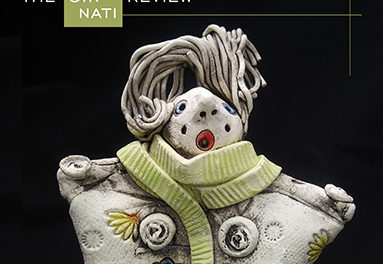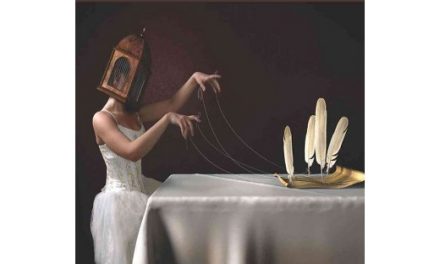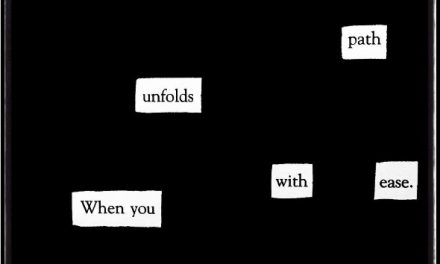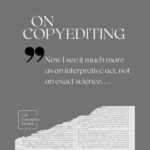There’s something odd about the chair that Associate Editor Lisa Ampleman vacated when she graduated this past spring. The spot is now occupied by Brian Brodeur, but sometimes his visage seems to fluctuate, his beard disappears, and he speaks in Lisa’s voice when he says, “I’m headed to Starbucks for a green tea latte,” or “Have you guys tried any of those new Lean Cuisines? I’m loving the butternut squash ravioli.” Some months back, as her “staff pick,” Lisa wrote an appreciative assessment of Rebecca Lehmann’s poem “Exoskeleton” (10.1), and weirdly, Brian Brodeur was moved to write one on the very same poem this week. Suddenly he found his hands whipped toward the keyboard, and his fingers tapped away until they completed the following analysis. Thereafter he slumped forward in a faint, but not until he was heard to say, “Go Cardinals!”
 Brian Brodeur: With its interchangeable allusions to entomology, British history, popular cinema, and kitschy American fashion, “Exoskeleton” fires its barrage of similes at an unsuspecting “you” with a violence that seems random at first. But Lehmann’s is an artful spontaneity, behaving associatively rather than rationally. “I wanted you,” the exasperated speaker explains, “like a slutty tank top wants a pair/ of big tits to fill it out,” an image of fullness that counterpoints the preceding image of being emptied: “I wanted you like the garbage can/ […] wants the garbage man.” This leap is indicative of the poem’s overall project: to qualify, contradict, and complicate the statement “I wanted you,” that hackneyed expression of sexual desire too cliché and reductive to express what it attempts to signify. Culminating with the deliciously unhealthy “greasy donuts and coffee of you,” the poem creates the overwhelming cumulative effect of burying the reader under its anaphoric catalog of lust. But unlike Winnie in Beckett’s Happy Days, a character who ends up neck-deep in earth as she rambles to her unresponsive husband, the speaker of “Exoskeleton” becomes more unburdened as her monologue progresses. “I want you,” the poem concludes, reminding us of how uncontainable our desires can be, how vulgar and strange, and how impossible they are to escape.
Brian Brodeur: With its interchangeable allusions to entomology, British history, popular cinema, and kitschy American fashion, “Exoskeleton” fires its barrage of similes at an unsuspecting “you” with a violence that seems random at first. But Lehmann’s is an artful spontaneity, behaving associatively rather than rationally. “I wanted you,” the exasperated speaker explains, “like a slutty tank top wants a pair/ of big tits to fill it out,” an image of fullness that counterpoints the preceding image of being emptied: “I wanted you like the garbage can/ […] wants the garbage man.” This leap is indicative of the poem’s overall project: to qualify, contradict, and complicate the statement “I wanted you,” that hackneyed expression of sexual desire too cliché and reductive to express what it attempts to signify. Culminating with the deliciously unhealthy “greasy donuts and coffee of you,” the poem creates the overwhelming cumulative effect of burying the reader under its anaphoric catalog of lust. But unlike Winnie in Beckett’s Happy Days, a character who ends up neck-deep in earth as she rambles to her unresponsive husband, the speaker of “Exoskeleton” becomes more unburdened as her monologue progresses. “I want you,” the poem concludes, reminding us of how uncontainable our desires can be, how vulgar and strange, and how impossible they are to escape.










